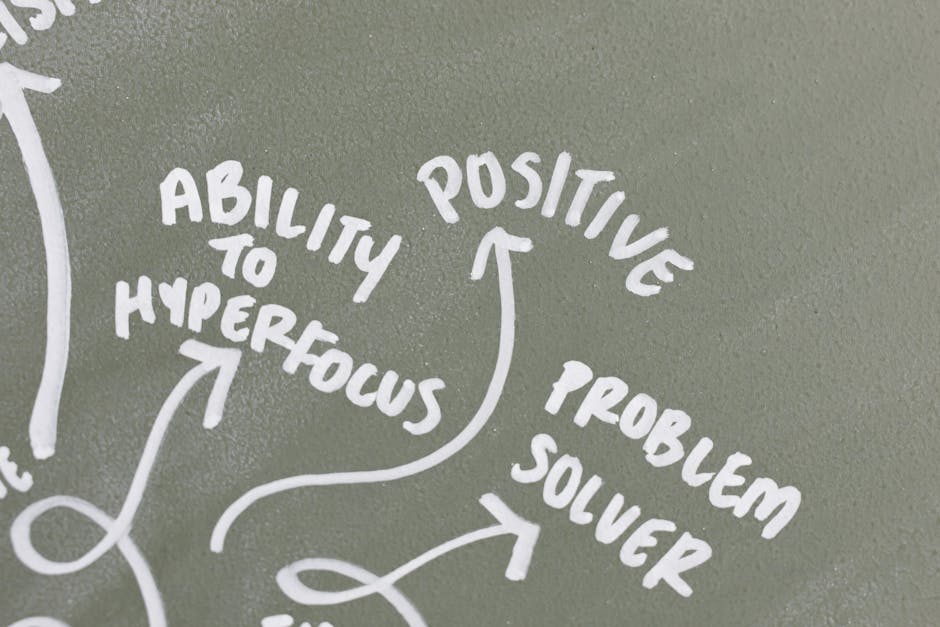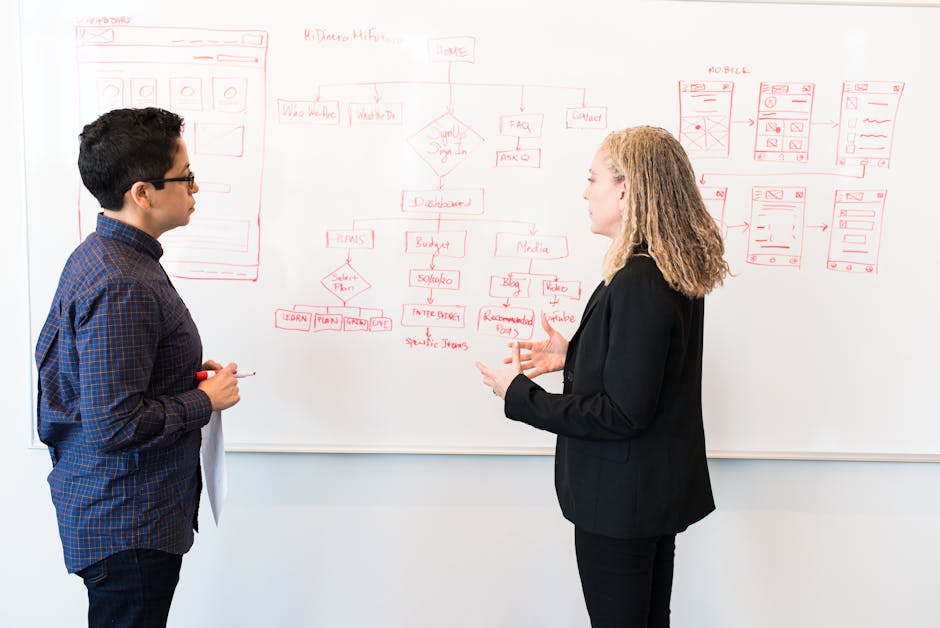Tips on Developing Critical Thinking Skills
In today’s fast-paced information age, developing critical thinking skills is more essential than ever. Critical thinking not only enhances your problem-solving abilities but also empowers you to make reasoned decisions based on logic and evidence. This article will provide you with effective tips on developing critical thinking skills, enabling you to approach challenges with a clear and analytical mindset.
Tips on Developing Critical Thinking Skills in Everyday Life
Integrating critical thinking into your daily routine can significantly enhance your analytical abilities. Here are some practical tips on developing critical thinking skills that you can implement right now:
- Ask Questions: Cultivate a habit of questioning the information you receive. Who created this content? What evidence supports this claim? Asking these questions encourages deeper thought.
- Reflect on Your Thinking: Take time to reflect on your decision-making processes. Consider what you did well and what could be improved. This self-assessment will highlight areas for growth.
- Explore Different Perspectives: Engaging with diverse viewpoints challenges your assumptions. Visiting platforms like TED can expose you to varied ideas, enhancing your ability to think critically.

Tips on Developing Critical Thinking Skills Through Education
Formal education plays a pivotal role in nurturing critical thinking skills. Incorporating these strategies into your learning experience can yield substantial benefits:
- Participate in Discussions: Join study groups or discussions where you can debate and analyze different topics. Collaborative thinking often leads to innovative solutions.
- Read Widely: Exposure to diverse subjects helps in forming well-rounded thoughts. Resources such as PLOS offer a plethora of research articles that can sharpen your analytical capabilities.
- Practice Problem-Solving: Engage in activities that require critical analysis, such as puzzles or strategic games. These exercises stimulate cognitive processes involved in critical thinking.
Transformative Strategies: More Tips on Developing Critical Thinking Skills
Beyond the everyday and educational practices, adopting a transformative approach to thinking can further sharpen your critical thinking skills. Consider the following strategies:
- Maintain an Open Mind: Be willing to change your stance if presented with compelling evidence. Open-mindedness is a cornerstone of effective critical thinking.
- Utilize Analytical Tools: Tools like SWOT analysis (Strengths, Weaknesses, Opportunities, Threats) can help you evaluate situations systematically. This analytical framework aids in making informed decisions.
- Seek Feedback: Invite constructive criticism on your thought processes from trusted peers or mentors. Feedback can provide insights you may have overlooked.
Incorporating these tips on developing critical thinking skills will not only enhance your personal growth but also equip you to tackle professional challenges more effectively. By fostering a mindset geared towards inquiry and analysis, you become an asset in any environment.
Ready to elevate your thinking? Explore further resources and courses on critical thinking to continue your journey. Remember, the tips on developing critical thinking skills are just the beginning; consistent practice and engagement will yield the greatest results.

Critical Thinking: Strategies to Develop Analytical Skills
In today’s fast-paced world, honing analytical skills through critical thinking is essential for personal and professional growth. Whether in education, the workplace, or everyday decision-making, Critical Thinking: Strategies to Develop Analytical Skills can empower individuals to make informed choices, solve problems efficiently, and navigate complex situations. This article delves into effective strategies that can help individuals enhance their analytical skills.
Understanding Critical Thinking: Strategies to Develop Analytical Skills
Critical thinking involves the ability to analyze information objectively and make reasoned judgments. To develop these skills, it’s essential to employ specific strategies that promote reflective thinking. According to the SkillsYouNeed website, engaging in reflective practices can significantly improve one’s critical thinking abilities. Here are several key strategies to incorporate:
- Ask Questions: Always question the information presented to you. What is the evidence? Who is providing the information? Why is it important?
- Assess Assumptions: Identify any underlying assumptions in arguments or beliefs. Questioning these can reveal biases and lead to a deeper understanding.
- Consider Different Perspectives: Trying to see an issue from multiple viewpoints can enhance your understanding and stimulate critical analysis.
- Engage in Discussions: Participate in discussions with others, as articulating your thoughts can clarify your analytical skills.
- Practice Problem-Solving: Regularly tackle challenging problems; this will hone your ability to evaluate situations critically and arrive at logical conclusions.

Implementing Critical Thinking: Strategies to Develop Analytical Skills in Real Life
Applying Critical Thinking: Strategies to Develop Analytical Skills in everyday scenarios can lead to significant improvements in decision-making and problem-solving. Here are practical applications:
- Daily Reflection: Spend a few minutes each day reflecting on your decisions and thought processes. What went well? What could have been improved?
- Utilize Mind Mapping: Create visual representations of thoughts and ideas to better organize information and highlight connections.
- Read Critically: Engage with various content critically. Don’t accept everything at face value—consider the author’s viewpoint and the supporting arguments.
- Take Courses: Invest in courses focusing on critical thinking and analytical skills, such as those offered by institutions like Coursera.
- Stay Informed: Keep up with current events and trends in your field. Understanding the context can aid in evaluating information critically.
By practicing these techniques, individuals will be better equipped to analyze situations, synthesize information, and solve complex problems effectively.
Building a Routine for Critical Thinking: Strategies to Develop Analytical Skills
Consistency is vital when working on Critical Thinking: Strategies to Develop Analytical Skills. Establishing a routine that incorporates these strategies into daily life ensures continuous improvement. Consider setting aside dedicated time each week for activities like:
- Reading diverse materials to expose yourself to new ideas.
- Engaging with peers or mentors who challenge your thoughts and provoke meaningful discussions.
- Practicing analytical exercises, such as puzzles or case studies, related to your field.
These habits will reinforce your analytical skills and ultimately enhance your capacity for critical thinking.
Embracing Critical Thinking: Strategies to Develop Analytical Skills is a critical part of personal development and professional success. By actively implementing these strategies, you can enhance your ability to think critically, make informed decisions, and navigate life’s challenges effectively. For more resources on improving analytical skills, visit Edutopia.

Developing Critical Thinking Through Effective Questioning
In an increasingly complex world, developing critical thinking skills is essential for making informed decisions and solving problems effectively. One of the most powerful tools in fostering these skills is effective questioning. By implementing strategies for developing critical thinking through effective questioning, individuals can enhance their ability to think critically and approach problems with a balanced perspective. This article will explore how effective questioning can be used as a tool for developing critical thinking and provide useful techniques that anyone can apply.
Understanding the Importance of Effective Questioning in Developing Critical Thinking
Effective questioning is a cornerstone of developing critical thinking through effective questioning. It stimulates deeper understanding and encourages individuals to analyze and evaluate information critically. Open-ended questions, for example, promote discussion and reflection, leading to a more profound exploration of ideas. Here are a few key benefits of using effective questioning to enhance critical thinking:
- Encourages curiosity and exploration of topics.
- Promotes dialogue and the exchange of diverse perspectives.
- Facilitates self-reflection and assessment of one’s thinking processes.
According to the Critical Thinking Community, questioning not only helps students engage with material but also cultivates a habit of seeking clarity and understanding. This is crucial in a world where misinformation is prevalent.

Strategies for Developing Critical Thinking Through Effective Questioning
Implementing strategies for developing critical thinking through effective questioning involves a conscious effort to ask impactful questions that challenge assumptions and encourage deeper inquiry. Here are several techniques:
- Ask Open-Ended Questions: Encourage expansive thinking with questions that cannot be answered with a simple yes or no.
- Encourage ‘Why’ and ‘How’: Questions that delve into the reasoning behind decisions or ideas foster deeper analysis.
- Utilize Socratic Questioning: This method involves asking a series of questions that leads a person to discover answers on their own, promoting critical thinking skills.
By employing these techniques, educators, parents, and individuals can create an environment that encourages critical thinking. Research conducted by Education Corner emphasizes the importance of questioning in various learning environments, suggesting that it helps in integrating new knowledge with existing understanding.
Incorporating effective questioning strategies into learning not only enhances understanding but also prepares individuals for real-world challenges by sharpening their analytical skills. This dynamic approach can be adapted to different settings, whether in classrooms, workplaces, or personal development.
Incorporating Effective Questioning into Daily Practices
To maximize the potential of developing critical thinking through effective questioning, it’s vital to integrate questioning into daily interactions. Here are some ways to do so:
- Engage in discussions where questions take precedence over answers.
- Practice reflective journaling with prompts that challenge your beliefs.
- Participate in group activities that require team members to explain their thought processes.
By consistently practicing these methods, individuals can significantly improve their critical thinking capabilities, making them more adept at analyzing various situations and making sound decisions.
Developing critical thinking through effective questioning is not merely an educational tool; it is a skill that can transform how we approach challenges in our everyday lives. Whether in academic settings, workplaces, or personal decision-making, fostering a culture of inquiry will lead to greater understanding and insight. Embrace questioning as a vital part of your journey towards enhanced critical thinking capacity.
For those looking to delve deeper into this topic, exploring additional resources and engaging in discussions regarding developing critical thinking through effective questioning can further enhance your skills. Start practicing today and witness the transformative power of inquiry!

Critical Thinking Development: Practices for Everyday Life
In today’s complex world, the ability to think critically is more important than ever. This article explores the concept of Critical Thinking Development: Practices for Everyday Life, providing practical strategies you can implement in your daily routine. Whether at work, in personal interactions, or while consuming media, enhancing your critical thinking skills can lead to more informed decisions and better problem-solving capabilities.
Understanding Critical Thinking Development: Practices for Everyday Life
Critical thinking is the process of analyzing information objectively and evaluating it to make reasoned judgments. Engaging in Critical Thinking Development: Practices for Everyday Life encourages a mindset that questions assumptions and examines underlying biases. To cultivate these skills, consider the following practices:
- Ask Questions: Always seek to understand the “why” behind information. This practice fosters deeper analysis and understanding.
- Reflect on Your Thinking: Take the time to assess your thought processes regularly, identifying any biases or assumptions you may hold.
- Engage with Diverse Opinions: Interacting with people who hold different viewpoints encourages open-mindedness and broadens your perspective.
- Practice Problem Solving: Regularly engage in exercises that challenge your problem-solving skills, such as puzzles or logic games.
- Read Actively: When reading articles or books, highlight key points and take notes. This practice helps in synthesizing information critically.

Applying Critical Thinking Development: Practices for Everyday Life in Communication
Effective communication is another area where Critical Thinking Development: Practices for Everyday Life can be vital. Clear communication allows you to express your thoughts and ideas logically while also engaging with others thoughtfully. Here are some strategies for enhancing critical thinking in communication:
- Listen Actively: Focus entirely on what the other person is saying, which helps you respond thoughtfully.
- Provide Constructive Feedback: Offer insights that encourage improvement and critical analysis, rather than simply criticism.
- Clarify Doubts: If you don’t understand something, ask questions to ensure you fully grasp the concept being discussed.
- Summarize Conversations: At the end of discussions, summarizing key points can help solidify understanding and clarity.
By incorporating these practices into your everyday conversations, you can enhance both your critical thinking skills and your interpersonal relationships.
Resources for Critical Thinking Development: Practices for Everyday Life
To further enhance your understanding of Critical Thinking Development: Practices for Everyday Life, numerous resources are available online. For example, the Critical Thinking Community provides valuable insights on critical thinking principles, while Psychology Today offers articles on its importance in daily decisions. Engaging with these materials can support your journey toward becoming a more effective critical thinker.
As we navigate through life, the significance of Critical Thinking Development: Practices for Everyday Life becomes increasingly clear. By implementing these practices and utilizing available resources, you will not only improve your personal and professional decision-making but also enrich your overall life experience. Start enhancing your critical thinking skills today by experimenting with the strategies outlined here, and join the movement towards a more thoughtful, informed society.

Using Critical Thinking to Enhance Decision-Making Skills
In today’s complex and fast-paced environment, making effective decisions is crucial. Using critical thinking to enhance decision-making skills can transform how you analyze problems and identify solutions. This approach not only improves the quality of your decisions but also equips you with the tools needed to navigate challenges with confidence. In this article, we will explore how critical thinking can significantly enhance your decision-making abilities.
Understanding the Importance of Using Critical Thinking to Enhance Decision-Making Skills
Critical thinking involves a structured and reasoned approach to evaluating information and making decisions. When you focus on using critical thinking to enhance decision-making skills, you develop the ability to assess situations comprehensively. This includes distinguishing between facts and opinions, recognizing biases, and weighing different perspectives. Such skills are invaluable in both personal and professional contexts.
Key Strategies for Using Critical Thinking to Enhance Decision-Making Skills
There are several strategies that can help you cultivate critical thinking skills for better decision-making. Here are some essential approaches to consider:
- Ask the Right Questions: Begin your decision-making process by posing relevant questions. This ensures that you gather necessary information and clarify your objectives.
- Gather Diverse Perspectives: Engaging with different viewpoints enables you to see the bigger picture, which is vital for informed decision-making.
- Evaluate Evidence Rigorously: Scrutinize the evidence you gather critically. This includes assessing credibility, relevance, and impact.
- Reflect on Past Decisions: Analyze previous choices to understand what worked and what didn’t. Learning from experience is key to enhancing your decision-making skills.
Implementing these strategies can substantially improve your ability to use critical thinking effectively. By doing so, you not only make informed decisions but also enhance your confidence in the decision-making process.
Measuring the Impact of Using Critical Thinking to Enhance Decision-Making Skills
The benefits of using critical thinking to enhance decision-making skills are measurable and significant. When you apply critical thinking in your decision-making, you can expect to see the following results:
- Increased clarity and focus in your decisions
- Greater ability to handle complex problems
- Improved collaboration and communication with team members
- Enhanced creativity and innovation in solution-finding
To gain further insights into how critical thinking influences decision-making, consider exploring resources like The Critical Thinking Community and Harvard Business Review’s guide on decision-making.
Harnessing the power of using critical thinking to enhance decision-making skills is essential for anyone looking to improve their personal and professional life. By adopting critical thinking techniques and approaches, you can refine your decision-making process, ultimately leading to more effective outcomes in various aspects of your life.
Start integrating these strategies into your decision-making process today. To explore more on using critical thinking to enhance decision-making skills and improve your overall effectiveness, consider engaging in workshops or online courses that specialize in critical thinking frameworks and methodologies. The journey towards enhanced decision-making starts with a commitment to think critically.


Using critical thinking to enhance decision-making skills is essential in navigating complex situations and making well-informed choices that align with one’s goals and values. It allows individuals to evaluate information, consider different perspectives, and weigh evidence before arriving at a sound decision.
This book is a valuable resource for improving one’s analytical skills and enhancing critical thinking abilities in various aspects of life. Highly recommend it for anyone looking to sharpen their problem-solving and decision-making skills.
“Developing critical thinking skills in everyday life can help you make better decisions, solve problems more effectively, and become more aware of your own biases and assumptions.”
“Understanding Critical Thinking Development offers insightful strategies and tools that can be applied to improve decision-making and problem-solving skills in various aspects of everyday life.”
Developing critical thinking skills in everyday life can help you make better decisions, solve problems more effectively, and navigate complex situations with confidence. It’s an invaluable skill that can enhance many aspects of your personal and professional life.
“Developing critical thinking skills in everyday life has truly helped me make more informed decisions and navigate complex situations with confidence.”
Utilizing critical thinking skills can help individuals make more informed decisions, consider multiple perspectives, and evaluate complex situations effectively. It’s an essential tool for navigating challenges and achieving successful outcomes in both personal and professional settings.
Understanding the importance of using critical thinking to enhance decision-making skills is crucial for navigating life’s various challenges and making informed choices that align with our goals and values. It empowers individuals to assess information critically, consider alternative perspectives, and ultimately make more effective and thoughtful decisions.
I found the book on Understanding Critical Thinking extremely insightful and practical, offering clear strategies to improve my analytical skills and reasoning abilities. Highly recommended for anyone looking to enhance their critical thinking capabilities.
Developing critical thinking skills is essential for making better decisions and solving problems effectively in everyday life. By challenging assumptions and evaluating information objectively, one can become more analytical and logical in their thinking.
Using critical thinking to enhance decision-making skills can lead to better outcomes by allowing individuals to weigh information carefully and make more informed choices. It is an essential skill to navigate complex situations effectively.
Developing critical thinking through effective questioning is essential for cultivating analytical skills and fostering a deeper understanding of complex issues. Asking thought-provoking questions encourages individuals to challenge assumptions and consider different perspectives.
This book provides practical techniques and thought-provoking exercises to enhance critical thinking abilities and promote better decision-making in various contexts.
This book provides clear and practical tips for improving critical thinking and analytical skills, making it an invaluable resource for anyone looking to enhance their decision-making abilities.
This book provides practical strategies and insights to develop critical thinking skills that can be applied in various aspects of daily life, making it a valuable resource for personal growth and success.
By systematically evaluating information and considering different perspectives, critical thinking can significantly improve the quality of decisions we make in various aspects of life. It’s a valuable skill that empowers us to make more informed choices and avoid potential biases.
Understanding the importance of effective questioning in developing critical thinking skills is essential for promoting deep analysis and problem-solving ability in any learning or professional setting. By asking thoughtful and thought-provoking questions, individuals can explore different perspectives and enhance their overall ability to think critically and make informed decisions.
Critical thinking is an essential skill that helps individuals make informed and effective decisions in various aspects of life, allowing for a more thoughtful and strategic approach to problem-solving.
Developing critical thinking skills in everyday life can help improve decision-making, problem-solving, and overall cognitive abilities, ultimately leading to more informed and reasoned actions. It’s important to practice questioning assumptions, considering multiple perspectives, and analyzing information critically to enhance your critical thinking skills.
Using critical thinking to enhance decision-making skills is vital for making informed and effective choices in both personal and professional settings. It allows individuals to evaluate information objectively, consider various perspectives, and ultimately make well-thought-out decisions.
This book provides a comprehensive guide on how to strengthen critical thinking abilities through various strategies, making it an invaluable resource for anyone looking to enhance their analytical skills.
This book was incredibly insightful and offered practical strategies to enhance my critical thinking skills, challenging me to approach problems in a more analytical and thoughtful way.
I found the guide on understanding critical thinking development to be insightful and practical, with tips that can easily be applied to daily situations for improving decision-making skills.
Critical thinking development is so important for making informed decisions and solving problems effectively in all aspects of our lives. It’s great to see resources and practices being developed to help people improve their critical thinking skills for everyday use.
Using critical thinking to enhance decision-making skills is crucial for making informed and logical choices in both personal and professional settings. It helps individuals evaluate situations objectively and consider various perspectives before reaching a final decision.
Understanding the importance of using critical thinking to enhance decision-making skills is crucial for navigating both personal and professional challenges with clarity and confidence. It enables individuals to make well-informed choices that lead to better outcomes and problem-solving in various aspects of life.
Understanding the importance of effective questioning in developing critical thinking is crucial as it helps us analyze and interpret information more deeply, leading to greater insight and problem-solving abilities.
Critical thinking development is crucial for navigating daily challenges and making informed decisions, it helps in analyzing situations objectively and identifying potential solutions. Practice and application of critical thinking skills in everyday life can lead to improved problem-solving abilities and a deeper understanding of complex issues.
Developing critical thinking skills in everyday life can help you make better decisions, solve problems more effectively, and become a more confident and independent thinker. It’s a valuable skill that can benefit various aspects of your life and enhance your overall problem-solving abilities.
This article provides valuable insights on how to improve critical thinking skills for practical application in everyday situations.
Critical thinking development is essential for making sound decisions and solving complex problems in our daily lives. Practicing critical thinking regularly can help us approach situations with logic, reason, and a deeper understanding.
Learning how to think critically in everyday situations is crucial as it enables us to analyze information effectively and make better decisions based on evidence and logic. By practicing critical thinking skills, we can navigate complex challenges with clarity and confidence.
“Critical Thinking: Strategies to Develop Analytical Skills offers valuable insights and practical tools for sharpening one’s ability to think critically and solve problems effectively.”
Understanding the importance of using critical thinking to enhance decision-making skills can lead to more informed and effective choices in both professional and personal aspects of life. It helps to consider multiple perspectives, analyze information thoughtfully, and make decisions based on logical reasoning.
Developing critical thinking skills in everyday life is crucial for making informed decisions and solving problems effectively. It helps broaden your perspective and empowers you to analyze situations more objectively.
This book offers practical guidance on how to cultivate critical thinking skills for daily use, making complex decision-making processes easier to navigate.
Effective questioning is such a powerful tool for developing critical thinking skills, as it encourages us to evaluate information, think deeply, and come to our own conclusions. It’s all about asking the right questions to stimulate thought and promote greater understanding.
This book offers valuable insights and practical techniques to enhance critical thinking abilities and foster analytical skills for improved decision-making in various aspects of life.
Developing critical thinking skills in everyday life can help you make better decisions, solve problems more effectively, and better understand the world around you. It’s a valuable skill that can be cultivated through practice and self-reflection.
Understanding the importance of effective questioning in developing critical thinking is crucial for fostering deeper learning and problem-solving skills in individuals of all ages and backgrounds. It empowers individuals to think critically, evaluate information, and make informed decisions in various aspects of their personal and professional lives.
Understanding the importance of effective questioning in developing critical thinking skills can greatly enhance one’s ability to analyze situations from different perspectives and make informed decisions. It is a valuable tool that fosters deeper understanding and encourages meaningful dialogue.
Improving critical thinking skills in daily life can help us make better decisions, solve problems more effectively, and see situations from multiple perspectives. It’s a valuable skill that can benefit us in various aspects of our lives.
“Learning and applying critical thinking skills in everyday life not only improves decision-making, problem-solving, and analytical abilities, but also helps foster a deeper understanding of complex issues and encourages open-mindedness.”
“Understanding Critical Thinking Development: Practices for Everyday Life provides practical tips and strategies to hone your critical thinking skills in daily decision-making.”
“Learning to ask the right questions is essential for developing critical thinking skills and gaining a deeper understanding of complex issues.”
Utilizing critical thinking to enhance decision-making skills can lead to more thoughtful and informed choices in both personal and professional situations. It allows individuals to consider various perspectives, weigh evidence, and ultimately make well-informed decisions.
“Understanding Critical Thinking Development offers valuable insights and practical tips for improving reasoning skills in everyday decision-making.”
Critical thinking development is essential for making informed decisions and analyzing situations from various perspectives, enhancing problem-solving abilities in everyday life.
Critical thinking is crucial in making informed decisions as it helps us analyze information, consider different perspectives, and make rational choices based on evidence and logic. It is a valuable skill that can lead to better outcomes and improved problem-solving abilities in various aspects of life.
Critical thinking development is essential for making well-informed decisions and solving complex problems in our everyday lives. It helps us to analyze information effectively and think more logically and rationally.
Developing critical thinking skills in everyday life is crucial for making informed decisions and solving problems effectively. By actively questioning assumptions and evaluating evidence, we can enhance our problem-solving abilities and better navigate complexities in various situations.
Developing critical thinking skills in everyday life is important for making informed decisions and solving problems effectively. It helps us navigate the complexities of the modern world and avoid falling for misinformation or making hasty judgments.
“Critical Thinking: Strategies to Develop Analytical Skills provides practical tools and techniques to enhance decision-making and problem-solving abilities with a clear and engaging approach.”
Understanding the importance of using critical thinking to enhance decision-making skills is crucial in navigating today’s complex world and making well-informed choices that can lead to better outcomes in various aspects of life.
Critical Thinking: Strategies to Develop Analytical Skills provides useful insights and practical techniques for enhancing one’s ability to think critically and make informed decisions. It serves as a valuable resource for anyone looking to improve their analytical skills.
Understanding the importance of effective questioning in developing critical thinking has certainly made a positive impact on my problem-solving skills and decision-making abilities.
Effective questioning is crucial in cultivating critical thinking skills as it encourages deeper exploration and analysis of ideas and issues. It helps individuals to challenge assumptions, think more rationally, and arrive at well-informed conclusions.
Understanding Critical Thinking is a valuable resource that provides practical strategies to improve analytical skills and enhance problem-solving abilities. Highly recommended for anyone seeking to strengthen their critical thinking abilities.
Understanding the importance of effective questioning in developing critical thinking can lead to deeper insights and better decision-making in various aspects of our lives. It’s a valuable skill that can enhance our problem-solving abilities and foster a more curious and analytical mindset.
“Critical Thinking provides valuable insights and techniques for improving analytical skills, making it an essential resource for anyone seeking to enhance their problem-solving abilities.”
Critical thinking is a valuable skill that can help individuals analyze information effectively and make informed decisions in various aspects of their lives.
Utilizing critical thinking skills to make decisions allows for a more thorough evaluation of options and potential outcomes, leading to better, more informed choices.
Critical thinking development is essential for navigating complex situations and making informed decisions in everyday life. Implementing effective practices can help individuals hone their analytical and problem-solving skills to approach challenges with a more thoughtful and rational perspective.
Developing critical thinking skills in everyday life is essential for making informed decisions and solving problems effectively. It can also help enhance communication skills and promote a deeper understanding of complex issues.
Understanding the importance of effective questioning is essential in developing critical thinking skills, as it prompts deeper analysis and exploration of ideas. This skill can lead to a better understanding of complex concepts and the ability to make more informed decisions.
Learning to think critically not only helps us make better decisions and solve problems more effectively, but also enables us to see issues from multiple perspectives and make more informed choices in our daily lives.
This book provides clear and practical techniques to enhance critical thinking abilities and problem-solving skills, making it an invaluable resource for anyone seeking to develop analytical thinking skills.
Understanding the importance of using critical thinking to enhance decision-making skills can lead to making more informed and effective choices in both personal and professional life. It allows for analyzing situations from various perspectives and considering potential consequences before taking action.
This book provides valuable insights into developing analytical skills and enhancing critical thinking abilities, which are essential for navigating complex situations in both personal and professional life. I found the strategies practical and easy to apply, making it a useful resource for anyone looking to improve their decision-making processes.
Understanding the importance of effective questioning in developing critical thinking is crucial for enhancing one’s ability to analyze information and make informed decisions in various aspects of life. It is through asking thoughtful and probing questions that we can challenge assumptions, gain deeper insights, and ultimately cultivate a more thoughtful and rational mindset.
Using critical thinking to enhance decision-making skills is crucial for making well-informed choices and achieving positive outcomes in both personal and professional situations. It allows individuals to analyze information, weigh alternatives, and consider potential consequences before taking action.
“Critical Thinking: Strategies to Develop Analytical Skills is a comprehensive guide that equips readers with the tools to think more deeply and analytically in various aspects of life and work.”
uarlb2
o52fvn
lbervo
arrlfh
zomony
naturally like your web site however you need to take a look at the spelling on several of your posts. A number of them are rife with spelling problems and I find it very bothersome to tell the truth on the other hand I will surely come again again.
iomz2n
vmarbr